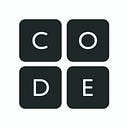New: CS Connections has SEVEN new modules, plus professional learning
Add coding to your existing math, science, and ELA classes with these new learning experiences.
Code.org is excited to announce the latest additions to our CS Connections curriculum! Intended for grades 3–5, CS Connections is a comprehensive curriculum that seamlessly integrates computer science (CS) into various subjects, such as math, English language arts, science, and social studies. This year’s launch is designed specifically for elementary teachers who don’t teach CS or who are new to CS; these modules empower educators to integrate CS with other subjects, reinforcing, strengthening, and extending student learning.
We will launch CSC curriculum for K-12 in future years.
Built for teachers, CS or otherwise
We understand the challenges that teachers face when it comes to incorporating new subjects into their already-packed schedules. That’s why CS Connections is built with a modular and flexible structure that can be completed within a week. Our goal is to provide teachers with a one-stop-shop solution, including lesson plans, coding level progressions, and videos, all in one convenient place. This streamlined approach saves valuable time for educators, allowing them to focus on delivering engaging and impactful lessons.
One of the most remarkable aspects of CS Connections is that it requires very little to no prior CS knowledge. Our curriculum is designed to bridge that gap, providing all the necessary resources and support for educators to confidently teach CS-integrated lessons. You don’t need to be an expert in programming to inspire your students and ignite their curiosity about computer science!
We’re also offering a free self-paced professional development module with explanations of key coding concepts and pedagogical best practices, so teachers feel confident incorporating these lessons into their classrooms.
Cross-disciplinary and cross-cultural
The new CS Connections modules represent a vital step toward a more interconnected and engaging learning experience: developing transferable skills across disciplines. The modules weave CS principles into the core curriculum, creating a vibrant, integrated learning landscape. Their unique structure, complete with thought-provoking discussion questions, encourages exploration and cross-disciplinary thinking. Instead of imparting isolated knowledge, they help create an understanding of the interdependence of academic areas, thus equipping learners with the ability to navigate a future where disciplines are increasingly intertwined.
In our mission to create an inclusive learning experience, the CS Connections curriculum weaves the principles of culturally responsive teaching practices into its core. It’s rooted in the belief that all students, regardless of their backgrounds, should see themselves reflected in the curriculum. By integrating computer science into various subjects, we’re creating multiple entry points into the realm of CS for students from diverse backgrounds. This not only enriches the educational landscape but also fosters a sense of belonging among students. The result is an empowering, inclusive learning environment.
Preparing students for the future
As part of these culturally responsive teaching efforts, our curriculum helps students see the practical relevance of CS in their daily lives and future careers. For instance, students can simulate a marine ecosystem using coding, create geometric star quilts through programming, or code interactive maps for geography projects! By experiencing firsthand how CS can be applied to other subjects, students develop a deeper understanding of both computer science and the interconnectedness of the world around them.
We are thrilled to introduce the newest CS Connections modules:
Simulating a Marine Ecosystem: Students will use coding to simulate a marine ecosystem, exploring the interdependencies between different organisms and their environment.
Coding a Geometric Star Quilt: Students will learn code to create geometric patterns in stunning star quilts, blending mathematical concepts with creative expression.
Coding a Time Capsule: Students will create a digital time capsule to capture and preserve memories for the future.
Coding Interactive Maps: Students will use coding to develop a map that tells a story, allowing them to explore geographic information in an engaging and interactive way.
Modeling Animal Adaptations: Students will use code to model animal adaptations, deepening their understanding of how different species have evolved to survive in their environments.
Coding Book Covers: Students can use code to create the cover of a book, using sprites and text to convey characters, setting, plot, and more.
Coding with Poetry: Students will explore the intersection of coding and language arts by creating interactive poems, bringing words to life through programming.
Each module culminates in a compelling project, giving students the opportunity to showcase their learning and creativity. These projects provide a tangible way for students to apply their CS skills and demonstrate their understanding to their peers and teachers.
We hope these new modules inspire teachers and students — both within and outside of the CS community — to further explore how computer science can be present in even more classroom activities, as well as the real world around them.
— Amy B. Woodman, Sr. Curriculum Development Manager
Code.org is a 501(c)3 nonprofit organization dedicated to every student having the opportunity to learn computer science as part of their core K-12 education. We are publicly funded by people like you. If you would like to join our commitment to computer science education by making a donation today, please click here. For questions, please contact Development at giving@code.org or (206) 593–5521. Thank you.
